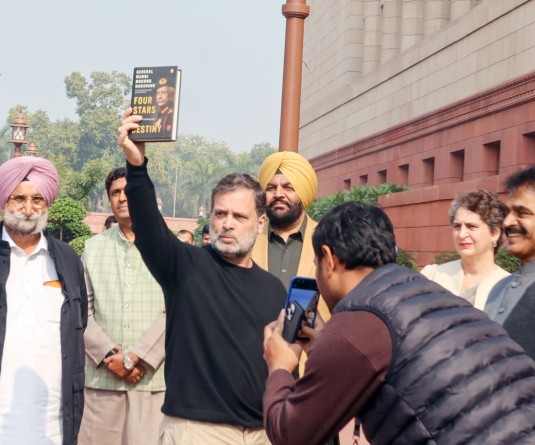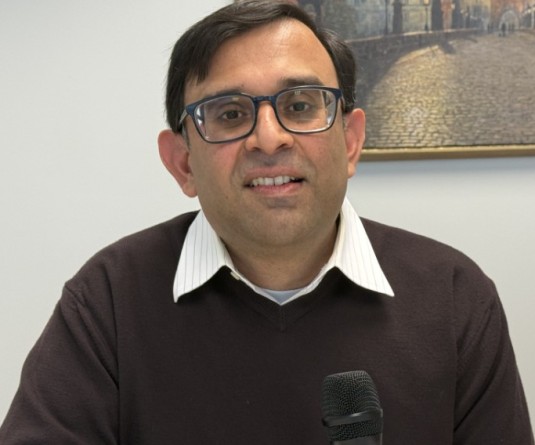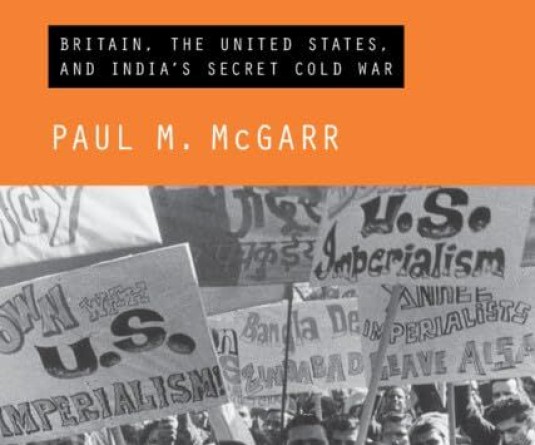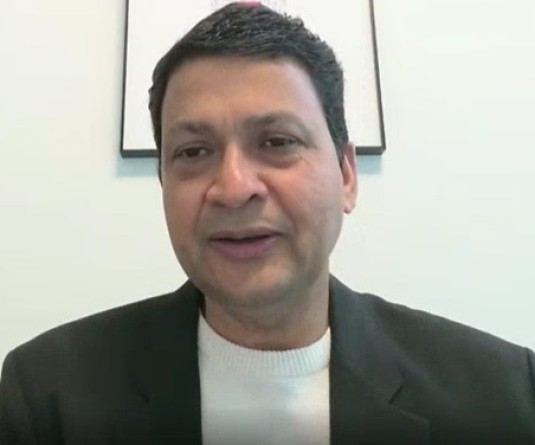IANS Photo
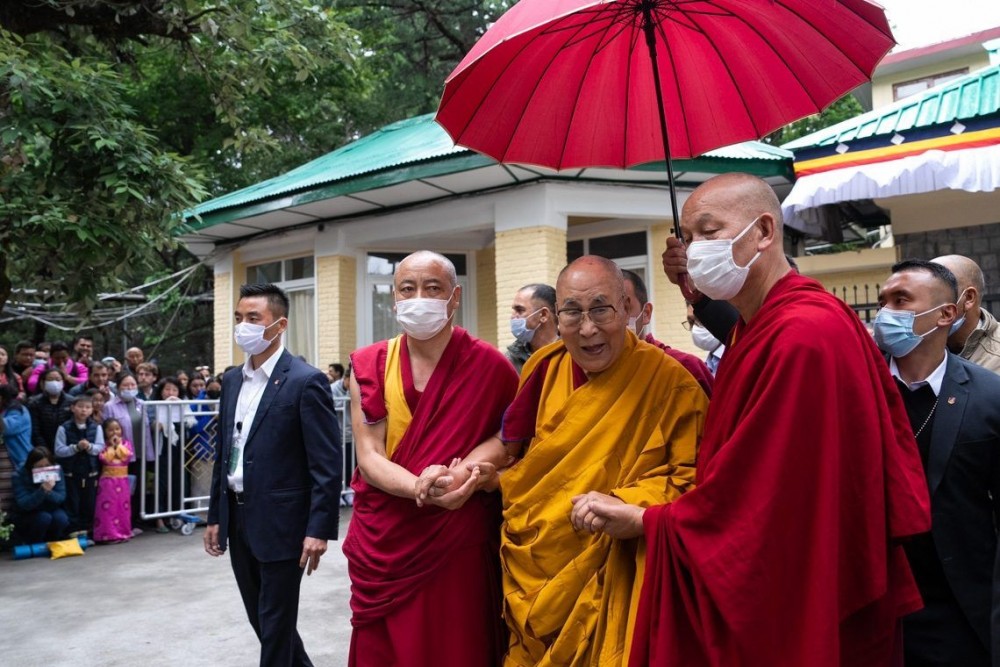
Dharamsala, July 2 (IANS) He's up and about even at 88. He sweats it out on a treadmill and feeds his appetite for news by listening to the BBC.
He's the Dalai Lama who will be celebrating his 88th birthday on July 6. His aides say he is a vegetarian, eats hot porridge and runs on a treadmill or strolls regularly.
His Holiness, an honorific given by his followers, starts his day as early as three in the morning with prayers and meditation.
After that, he takes a short morning stroll in his official palace or loves to trudge on a treadmill to stay fit.
And he eats hot porridge, tsampa (barley powder), bread with preserves, and tea.
No texting, no television and no music. The Buddhist monk, who was awarded the Nobel Peace Prize in 1989, during breakfast regularly tunes his radio to the BBC World News in English.
From 6 a.m. to 9 a.m. His Holiness continues his morning meditation and prayers, say aides.
After 9 a.m. he usually spends time studying various Buddhist texts and commentaries written by the great Buddhist masters. Lunch is served from 11.30 a.m.
His Holiness visits his office from 12.30 p.m. until around 3.30 p.m. During an afternoon at the office one interview is scheduled along with several audiences.
Upon his return to his residence, His Holiness has his evening tea at around 5 p.m. This is followed by his evening prayers and meditation. He retires in the evening by around 7 p.m.
Putting it simply, the Dalai Lama believes "our life is based on hope -- a desire for things to turn out well".
"Our lives depend on hope. If you have hope, you'll be able to overcome problems you face. But if you're without hope, your difficulties will increase. Hope is linked to compassion and loving kindness. In my own experience I've faced all sorts of difficulties in my life, but I never gave up hope," the Dalai Lama is often quoted as saying.
"Also, being truthful and honest is a basis for hope and self-confidence. Being truthful and honest is a counter to false hope. Hope founded on truth and honesty is strong and powerful."
The globetrotting Buddhist monk, known for wearing his trademark maroon robes, says one of his lifelong commitments is to introduce and revive ancient Indian knowledge in modern India through education and with a secular approach.
The Buddhist scholar, known for his simplicity and typical jovial style and for whom Mahatma Gandhi is the most influential leader of the 20th century for his idea of non-violence, prefers to participate in meetings with religious leaders, and lectures students and businessmen on ethics for the new millennium and the art of happiness.
In 1959, the occupying Chinese troops suppressed the Tibetan national uprising in Lhasa and forced the Dalai Lama and over 80,000 Tibetans into exile in India and neighbouring countries.
He believes India is the only country with the potential to combine its ancient knowledge with modern education. At the same time, the Nobel Peace Prize laureate says he considers himself a son of India.
"All particles in my mind contain thoughts from Nalanda. And it's Indian "dal" and "chapatti" that has built this body. I am mentally and physically a son of India," the Dalai Lama is often quoted as saying.
In his addresses, he is often fond of saying: "India and Tibet share a relationship of "Guru" (teacher) and "Chela (disciple). When I see some part of my guru being corrupt, as a chela I feel ashamed."
In his greetings to the President of India, Droupadi Murmu, on her 65th birthday on June 20, the Dalai Lama wrote, "This year marks the 64th year of our life in exile. We Tibetans are immensely grateful to the government and people of India for their generosity and kindness to us.
"As the international community becomes more aware of India's stature, not only as the world's largest democracy, but now also as the world's most populous nation, we feel proud of India's strength and emerging leadership. I firmly believe that India is poised to make a significant contribution to the creation of a more peaceful, more compassionate world."
On reaching India after a three-week treacherous journey in 1959, the Dalai Lama first took up residence for about a year in Mussoorie in Uttarakhand.
On March 10, 1960 just before moving to Dharamsala, which also serves as the headquarters of the exiled Tibetan establishment, the Dalai Lama had said: "For those of us in exile, I said that our priority must be resettlement and the continuity of our cultural traditions. We Tibetans would eventually prevail in regaining freedom for Tibet."
Every year, millions of people, including Tibetans in the diaspora, celebrate his birthday by engaging in charitable work around the world.
Time and again, a demand from Indian parliamentarians and his believers is being raised that India should confer its highest civilian award -- Bharat Ratna -- on him in recognition of his services to humanity.
This gained momentum last month with Prime Minister Narendra Modi's meeting with American Buddhist scholar Bob Thurman and his public hug to Hollywood star Richard Gere, both vocal and staunch supporters of His Holiness, who is viewed as anti-China by Beijing.
Pictures of Gere, chairperson of the International Campaign for Tibet, doing yoga next to Modi on June 21 at the United Nations headquarters in New York have gone viral on social media.
The 14th Dalai Lama was born on July 6, 1935, in a small village in the remote Amdo region of Tibet.


